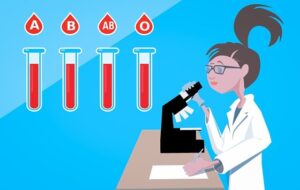FDA approved Pfizer COVID-19 booster shot for susceptible people
- Gut Bacteria Enzymes Offer Hope for ABO Universal Blood Transfusions
- Well-Known Japanese Medicine Exposed for 30 Years of Data Falsification
- Oregon Reverses Course: From Decriminalization to Recriminalization of Drug Possession
- Why Lecanemab’s Adoption Faces an Uphill Battle in US?
- Yogurt and High LDL Cholesterol: Can You Still Enjoy It?
- WHO Releases Global Influenza Vaccine Market Study in 2024
FDA approved Pfizer COVID-19 booster shot for susceptible people
- Was COVID virus leaked from the Chinese WIV lab?
- HIV Cure Research: New Study Links Viral DNA Levels to Spontaneous Control
- FDA has mandated a top-level black box warning for all marketed CAR-T therapies
- Can people with high blood pressure eat peanuts?
- What is the difference between dopamine and dobutamine?
- How long can the patient live after heart stent surgery?
FDA approved Pfizer COVID-19 booster shot (3rd dose) for susceptible people.
U.S. Food and Drug Administration (FDA) stated that people 65 years and older, people at high risk of serious diseases, medical staff, and other people at high risk of exposure to COVID-19 at work can be vaccinated with Pfizer (PFE. US) and BioNTech (BNTX.US) COVID-19 strengthening shot.
The FDA stated in a statement that the COVID-19 vaccine booster can be vaccinated at any time after the patient receives the second injection for at least 6 months.
The decision only involves the vaccination of Pfizer/BioNTech, and there are no updated guidelines for vaccination of Moderna and Johnson & Johnson.
This emergency approval is in line with the recommendations made by the FDA advisers last week, but is narrower than the comprehensive approval sought by Pfizer and its German partner BioNTech. This means that the Biden administration will have to slow down the plan for a wider rollout of booster shot proposed last month. The third dose of the vaccine was previously approved for certain people with compromised immune systems.
Pfizer CEO Albert Bourla said in a statement: “We believe that in response to the continuing threat of this disease, as well as efforts to increase global accessibility and acceptance among unvaccinated populations, booster shot will play an important role. “The FDA’s action today is an important step in helping the most vulnerable among us protect from the new coronavirus.”
Although the scope of this authorization is not as wide as some people hope, with more and more data about the safety and effectiveness of booster shot, the FDA may still consider more extensive use of booster shot, including use in young people. . It also guarantees that many of the first American seniors to be vaccinated will be among the first to receive additional protection.
Viral infections caused by variants of the Delta virus have surged, and at the same time people are worried that as the weather gets colder, the effectiveness of the vaccine will weaken.
Scientists are divided on the need for booster shot. Real-world studies have shown that Pfizer’s vaccines have been less effective this summer, especially in the prevention of minor breakthrough cases, although it is difficult to distinguish whether the growth of new patients is due to weakened immunity or highly infectious The effect of the delta variant.
But other data shows that vaccination can provide long-lasting protection against serious diseases that lead to hospitalization and death. Some researchers say that most people’s booster shots may be delayed for some time.
Vaccine attenuation
The FDA said that the reason for the approval of the booster was partly because an analysis by Pfizer showed that in clinical trials in July and August, people who were vaccinated earlier were compared with people who were vaccinated later. , “The curative effect is slightly decreased.”
In addition, the agency also considered real vaccine effectiveness data from the United Kingdom, the United States and Israel.
The safety of booster shot has been studied in more than 300 people, most of whom are between 18 and 55 years old. The most common side effects are pain and swelling at the injection site, fatigue, headache, and muscle pain. The agency said that compared with the previous two doses, axillary lymphadenopathy is more common after the booster shot.
The Advisory Committee on Immunization Practices of the Centers for Disease Control and Prevention (CDC) will meet on Thursday and is expected to discuss whether to recommend the third dose now authorized and to which groups. The committee will refine and define the groups that should be eligible for the booster based on the FDA’s decision.
This group of external vaccine experts met on Wednesday to conduct a comprehensive review of the effectiveness of the vaccine over time and the science of strengthening injections.
Some members raised the question whether people receiving Moderna or Johnson & Johnson’s (JNJ.US) vaccine should receive Pfizer booster vaccines, or whether they should wait for Moderna and Johnson & Johnson booster vaccines to be approved.
FDA vaccine officer Doran Fink said on Wednesday that the agency is “working as quickly as possible” to review the booster shot submitted by Moderna.
Data from the Centers for Disease Control and Prevention (CDC) show that since the FDA announced on August 13 that people with weakened immune systems can receive the third shot, more than 2 million Americans have received the third shot.
Earlier this year, Pfizer approved the vaccine for adolescents 16 years and older. Under emergency authorization, adolescents between 12 and 15 years old can also use the vaccine.
Some scientists, including members of the US Food and Drug Administration’s Vaccine Advisory Panel, have been worried about the risk of heart-related side effects of vaccines, especially in young men.
Need booster shot?
Recent evidence from other countries supports the use of strengthening booster shot to protect vulnerable groups. An Israeli study published in the New England Journal of Medicine showed that the third dose of Pfizer vaccine can significantly reduce the incidence of COVID-19-related diseases in people 60 years and older.
In addition, a study by Pfizer shows that the effectiveness of its first two injections will be weakened within a few months, and a booster dose is an effective way to curb the spread of viruses and new variants.
Some critics say that the booster injection should wait until the COVID-19 vaccination becomes more common around the world. The Director-General of the World Health Organization Tan Desai believes that the uneven distribution of vaccines will be the world’s biggest obstacle to ending the pandemic and recovering.
Before the Vaccine Advisory Group meeting last week, top scientists and two FDA officials questioned the scientific support of the third shot in a review article published in The Lancet, saying that the available dose would be better for immunization People who have not been vaccinated.
(source:internet, reference only)
Disclaimer of medicaltrend.org
Important Note: The information provided is for informational purposes only and should not be considered as medical advice.



